I couldn’t imagine that the large typical enclosed Indian market place, the old New Market, was where I would find the head of the Jewish community in Kolkata (formerly Calcutta) India. But that’s exactly where D.E. Nahoum has been for decades, looking after the most famous bakery known throughout the city.
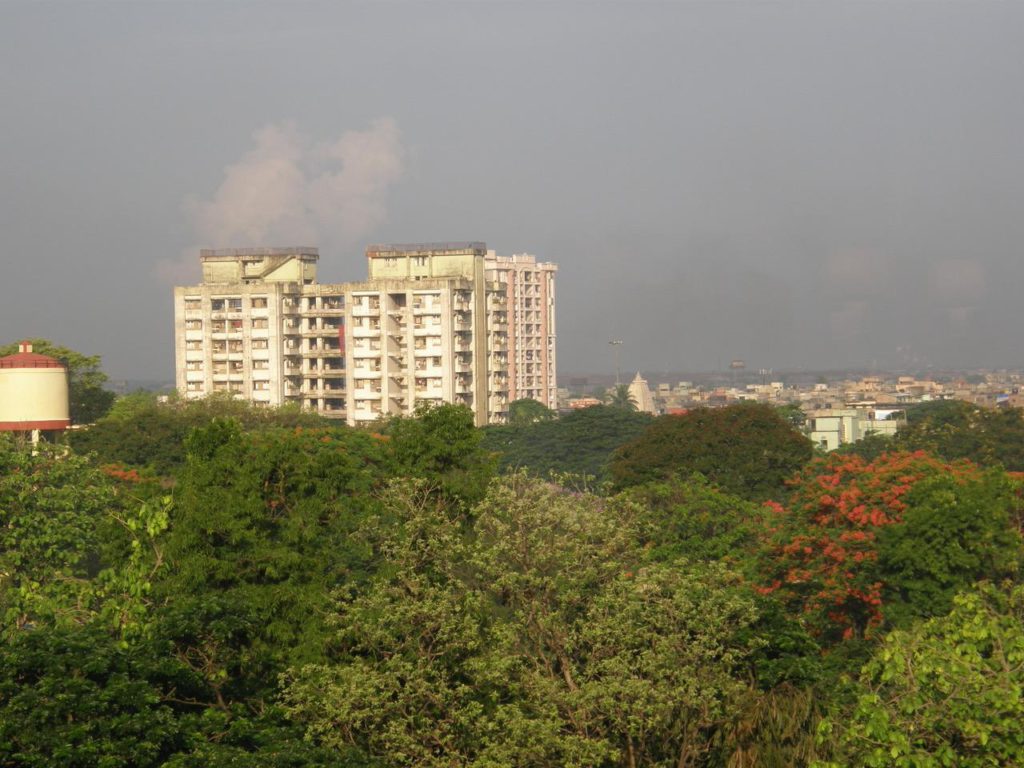
“Sit, sit,” he ordered me as he was handed chits from the queue many customers who had just made their sweet choices and purchases. Nahoum, the owner of this three generation’s old store, is also the cashier and is probably the best known merchant in this huge, sweltering, bustling ‘mall’.

The casual tourists would certainly not be able to find this legendary shop but with the help of my guide, Amitava, he knew exactly where the famous Nahoum would be. Amitava always shops here for celebratory goodies or a gift of wonderful cakes and tortes that has made Nahoum a house hold name, to bring home for his family.
“You must try my cakes,” he again ordered and had his salesperson bring a huge box of sweet edibles for me to nibble on while we talked about the Jewish community in Kolkata.

Once a fabled home to about 2800 thousand Jews, Kolkata now has just a handful. Nahoum estimates about 30 Jews live in Kolkata and only a few thousand are strewn throughout the large sub continent. Although he emphasizes that never has he or any member of his family ever felt any form of anti Semitism. Israel and various other countries like Australia, Canada and the USA, seemed to beckon so many left after World War II and also with the establishment of the Israel in 1948.
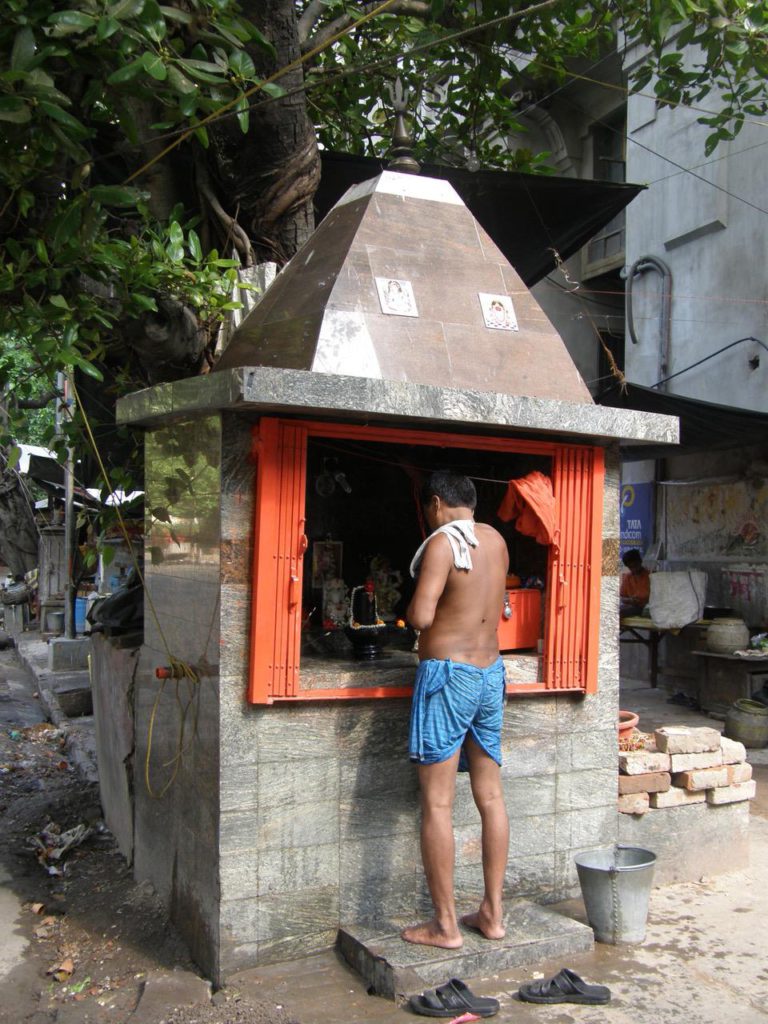
The history of the Jews seems to have started when Shalom Aaron Copen came in 1790 to Calcutta as it was then called. He independently added a new dimension to Jewry in that city and in time became part of India’s elite. This Syrian jeweller thrived and together with another wealthy Jew, Jacob Semah, they flourished.
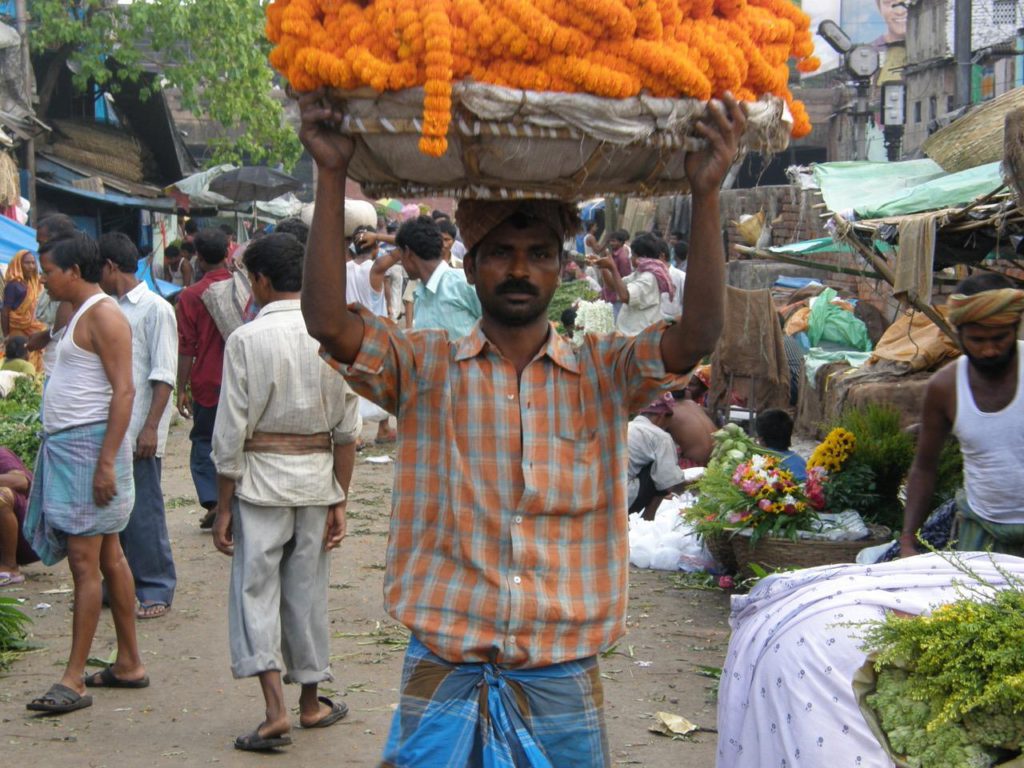
A few Jews started to move from Baghdad in the 19th century and one of the most important was Joseph Ezra. The Ezras seemed to have developed great influence and gathered the Jews into a community. Joseph Ezra’s name is a legend but it was to be his son David who had the amazing foresight to become a real estate developer which raised eyebrows at that time. But as business grew and buildings went up, it became a huge industrial empire and he was knighted in 1927. He was the last of the Ezra magnates at the end of the 20th century.

Another rag to riches story among the Jews was that of ambitious Benjamin Nassim Elias who had a jute business which became the staggering B.N. Elias conglomerate.
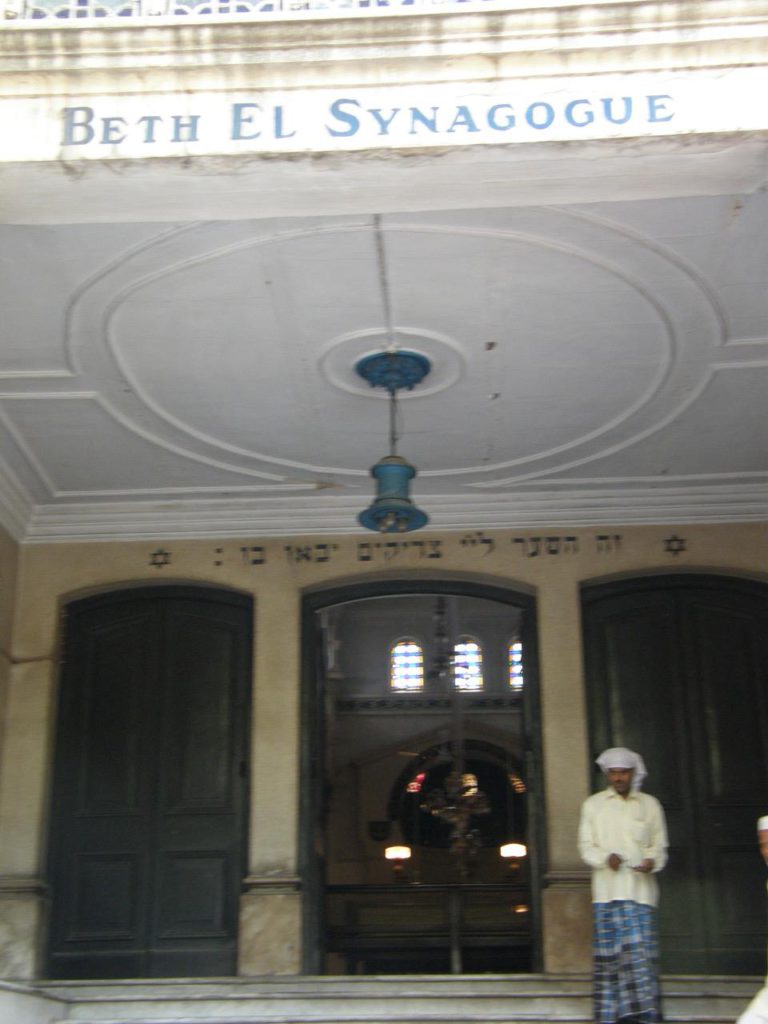
The city’s three synagogues were part of the legacy of the Ezra family. The imposing Beth El Synagogue was built in 1850, the Maghen David Synagogue, the last of the three with towering pillars sent from Paris, changed the skyline of Calcutta.
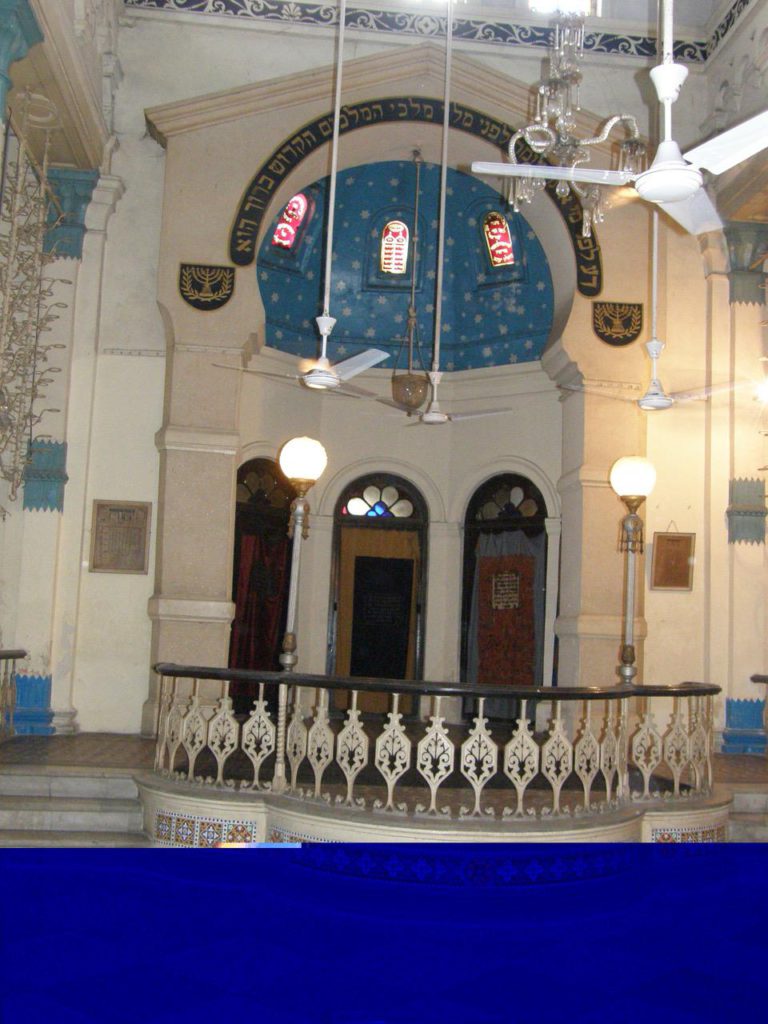
Plaques for the Ezra Family are seen at each synagogue since that family was the important ingredient of the then prosperous and important part of the city’s success. The Jews enjoyed a privileged life and at that time there was no ‘marrying out’. Jews married Jews.
Out of the three synagogues that were once well attended, one is permanently closed and the two remaining, although opened, I’m told that without Nahoum’s authorization, no one is admitted to these once stately buildings.
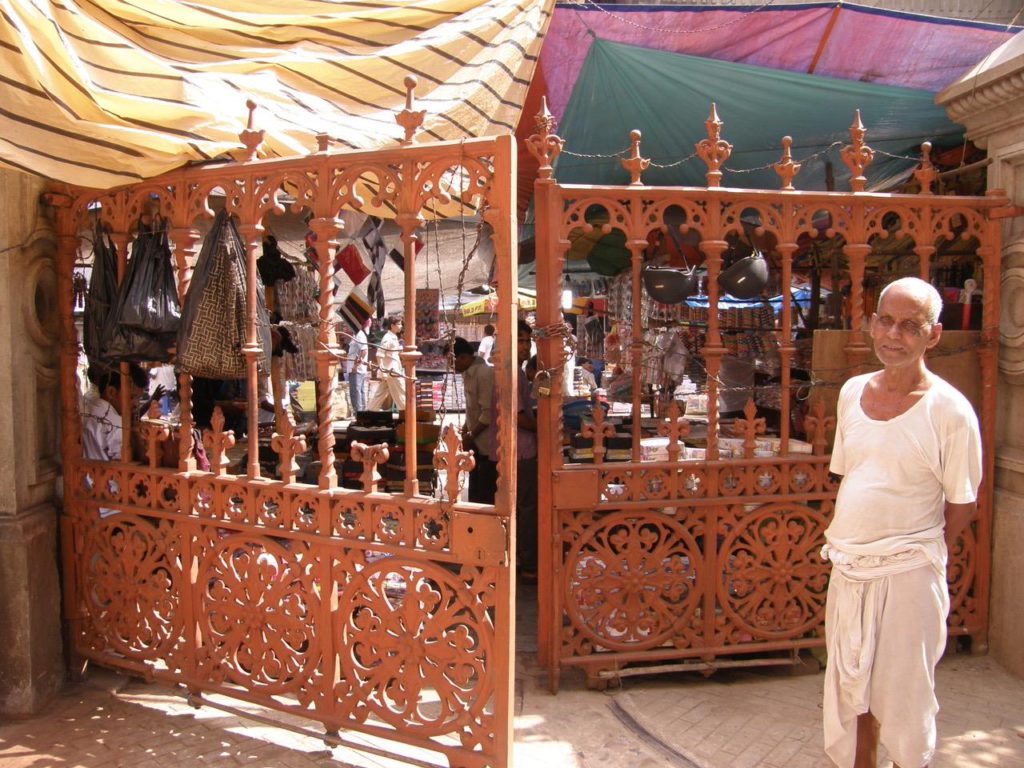
At Beth El Synagogue on Pollock Street, Amitava, was given a red kippa at which he looked with great suspicion. As a Hindu, he had never been in a synagogue or really ever known any other Jew except Nahoum for whom he has great respect. The irony about Beth El Synagogue is that the caretakers are Muslims and from the look of the synagogue, they have taken pride and great care in its maintenance.

Now a Heritage building there are 14 blue and white painted floor to high ceiling columns spread around the room and a heavy chandelier over the bimah. I didn’t have to ask but was asked if I wanted to see the Torahs. Out they came held carefully by the caretakers who again without any prodding, unrolled one of these ancient scrolls. The white wrought iron fronted balcony is where the women sat being cooled by the ceiling fans, the cane back seats and benches seemingly comfortable.

A short walk from there is the Maghen David Synagogue on Brabourne and Canning Street, which is entered now through a bustling typical outdoor Indian Market. Past a stall with hair accessories, the wrought iron gate was opened for us by a Muslim ‘shamas’. Under a Porte Couchere of red bricks, is the entrance to the ‘shul’, adorned with honourary plaques on either side. The building with its giant arches and niches also includes a majestic round stained glass window, apparently the original.
The Neveh Shalome Synagogue, separated by only a small courtyard, is permanently closed and from the look of the exterior, deteriorating.
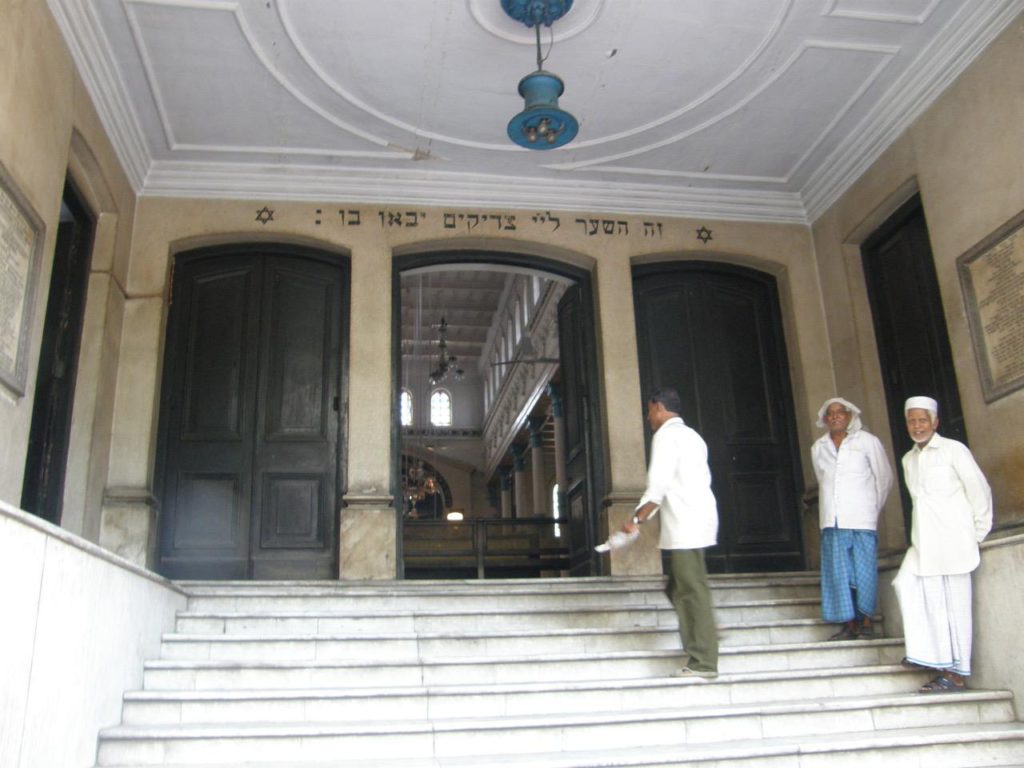
At the gate as I left, before going back into the hectic marketplace, I turned to take my last look at the Maghen David Synagogue, this once active gathering place. Instead of prayer goers, the three Muslims waved their goodbye to me.

